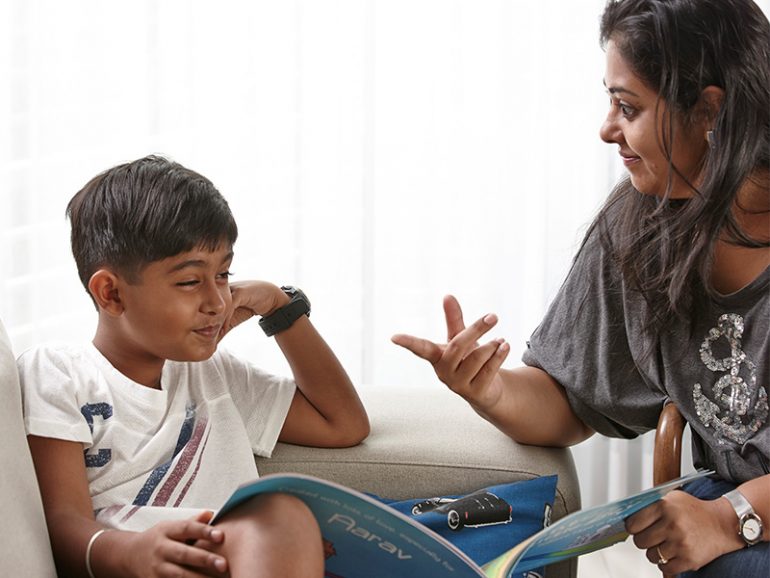There is no feeling greater than seeing your child achieve success. All of us love to celebrate their smallest victories because success is sweet. But even more commendable are their struggles and the journey to success. How can we equip them to deal with inevitable setbacks or failures?
We spoke to many parents to understand how they help their kids. Broadly the tips shared by parents fall into 2 categories:
- Immediate relief solutions when the child is feeling low after a specific incident.
- Things that can be done continuously to build emotional resilience towards setbacks.
WHAT YOU COULD DO AT THE TIME OF A SETBACK
1. Separate the setback from the emotional distress:
“I have not failed; I’ve just found 10,000 ways that won’t work.” – T. A. Edison
It’s ok to fail, failures are stepping-stones to success. Try to explain the situation to the child objectively, encouraging them to not respond to it with emotion but to rationally and analytically identify the reason for the failure. Eventually, you can encourage the child to find a way to fix one problem at a time.
2. Letting the child know that they are not the only ones:
Sharing stories of people who have faced a similar challenge and risen above them in different ways helps. Books and movies are a great way for kids to identify with the characters and learn to empathise with troubled peers. Must watch movies are Inside Out, Wonder, Frozen, etc. Some good books would be biographies of real people like Louis Armstrong, Stephen Hawking, Albert Einstein and more. Storybooks like The Rickshaw Girl, Roald Dahl’s books are great reads too.
3. Make them feel loved irrespective of their successes and failures:
Besides being our life-long projects, our children are just… children. It’s a tight rope for us parents to walk because before being taskmasters, we are nurturers. Kids need to know that we love them and that there are happy fun times, irrespective of their success or failure. Try to create a safe zone for them to come back to and lick their wounds until they are ready to bounce back in the world.
4. Your faith in their abilities will keep them going:
Ways to motivate children in their low phases vary depending on each child. Some feel the power of words, and may respond to motivational messages, some may need to vent and some just need a hug.
WHAT YOU COULD DO TO BUILD YOUR CHILD’S EMOTIONAL RESILIENCE
Emotional development and independence is built slowly over years, one little achievement at a time. It’s best to let children fail at small tasks and overcome them, this will eventually give them self-belief that they can overcome bigger setbacks too.
1. Building their self-confidence:
Start young, giving your child little tasks to feel proud of. Great ways to do this include looking after a younger sibling or a pet, small household chores, saying hello to the neighbours in an elevator, going out and buying bread, taking care of a special needs peer for a short while.
2. Having a problem-solving attitude:
Try, try until you succeed. Problem-solving is the key to trying again and again to eventually succeed. The first step to problem-solving is being unashamed to seek help (as Asians, we tend to be very conscious of being ridiculed for being unaware or asking too many questions).
Let them know about all the available resources and how to use them. For e.g. online encyclopedias, mentors, even writing to role models, reading books, libraries, seeking out specific people and information. In these fast-changing times, learning how to learn and how to apply knowledge to solve problems will help them through life.
3. Re-calibrating our own expectations and communication:
Every child is different, and they have their own strengths and weaknesses. Sometimes, our expectations of them may not be aligned with their natural strengths. For e.g. a child could have exceptional observation and artistic skills but may not be academically inclined, while academic excellence may be important to the parent.
Let’s try to recognize and manage such differences with love, care and open communication, to be aware if the child is unable to cope or is feeling low. And of course, let’s remind ourselves that we live in a world where the opportunities for different skills are constantly growing and changing!
These are a few things shared by Bookyboo’s circle of moms. We would love to hear more from you about what works to motivate your children!
At Bookyboo, we believe in contributing to holistic development while creating memorable family moments of love and learning together. Our personalised books are designed around life skills to build the child’s emotional intelligence and self-confidence, the activities in these stories are to give them a touch of pride and belief in themselves. We truly believe that these little ones are our Heroes of tomorrow and want them to know it too!
written by HETAL GANDHI, founder of Bookyboo. She loves books, adventure and good food.





